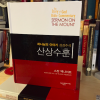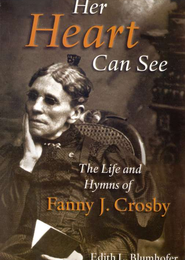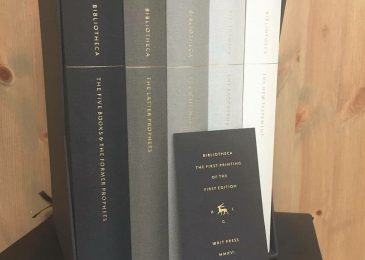It seems like everyone makes a best books list around this time, so adding my list probably isn’t going to shatter anybody’s world. In any event, there are a few reasons why I’ve compiled this list. First, I love reading and I love to share what I’m reading. Second, I’m also always encouraged by others’ thoughts and their lists often help me pick out a few last books for my Christmas wish list. Third, I get a lot of books from publishers, and while I don’t feel compelled to review them all (or many of them), I’m always willing to recommend a good book if it is, in fact, good.
In no particular order, here are my five favorite books from 2015 (or at least that I read in 2015):
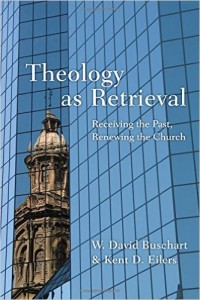
1. Theology as Retrieval by W. David Buschart and Kent Ellers
Buschart and Ellers offer reflection and hope for the practice of theological retrieval, focusing on six major points: Scripture, theology, worship, spirituality, mission, and cosmos. While admitting that this is nothing new, the authors seek to offer a model for theological retrieval. As we all know, we are prone to forget some of the most fruitful ways in which we’ve remembered where we came from.
While many books talk about the great things we–North American evangelicals in particular–have left behind, this book offers a how to reclaim them. While at times they seem almost pessimistic about the current state of theology, they also celebrate the ways in which it’s been done well. Some of the most interesting retrievals they call for are a more intentional use of the Book of Common Prayer and the beauty of historical church architecture.
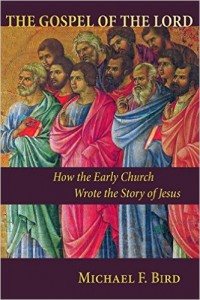
2. The Gospel of the Lord by Michael F. Bird
I’ve long been a fan of Michael Bird’s work (and am now blessed to study under him), and this might be my favorite of his books to date.
I always hope to read a good book or two on the Gospels each year. Jonathan Pennington’s Reading the Gospels Wisely made my 2014 list (posted at my currently-defunct personal website), and is one of my favorite books period. While Pennington’s book is helpful in looking at the genre and kerygmatic elements of the Gospels, Bird’s is a nice complement, taking a more historical approach to the Gospels. He addresses issues such as the origins of the Gospels, how they interrelate, comparisons between the canonical four and some of the false Gospels, and the role the Gospels play in shaping the teaching of the canon as a whole.
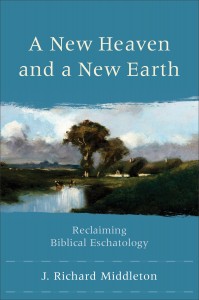
3. A New Heaven and a New Earth by J. Richard Middleton
If there’s one piece of theology I am most frustrated with, it’s eschatology that terminates on Heaven. The idea that we all die and spend forever in Heaven is an epidemic, in my opinion, among your everyday Christian. We need more books that decry this short-sighted view of eternity.
Middleton, often in an almost poetic way, centers eschatology back on the main thing: the eschatological hope of resurrection and eternity on the New Heaven and New Earth. Middleton at times raises more questions than he answers (for example, if annihilation is the probable outcome for the wicked), but that ends up being a plus overall, because he presses the reader to think and rethink their eschatology. His method also, for the most part, provides strong biblical-theological tools for the reader to use in further study.
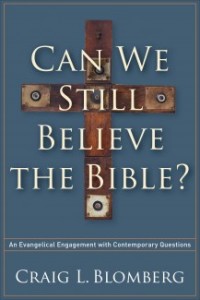
4. Can We Still Believe the Bible? by Craig Blomberg
Inerrancy is a buzzword that makes a lot of people uncomfortable. For those who think that believing in the inerrancy of Scripture necessarily means you’ve checked your brain at the door, Blomberg has provided an excellent response. I summarized one of my favorite parts of the book here.
He shows clearly and effectively that inerrancy is not only a valid way to view Scripture–it’s an intellectually honest and rigorous endeavor. He is helpful for the layman who asks the most basic questions about the trustworthiness of Scripture, and he is helpful for the pastor or academic as he tackles a wide range of views and issues on the nature and scope of Scripture.
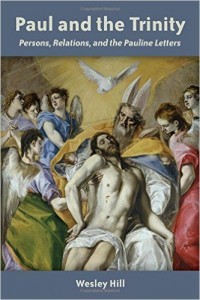
5. Paul and the Trinity by Wesley Hill
I said that this is in no particular order, and I meant it–because Hill’s book was probably my favorite read of 2015. Most notably, for me, is that it inspired the thesis I’m now writing. Instead of recapping it here, though, let me just point you to my interview with Wesley from earlier this year.

